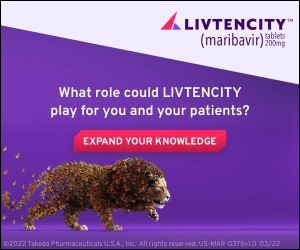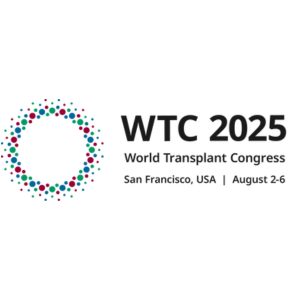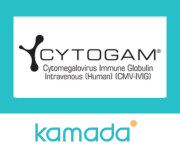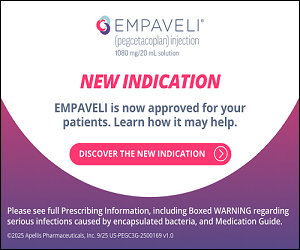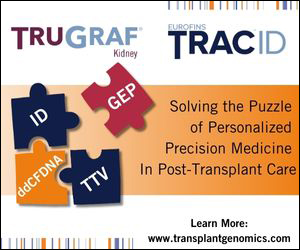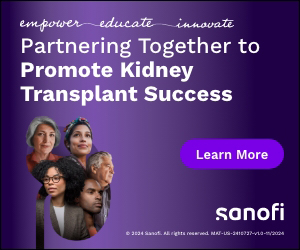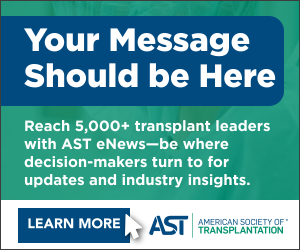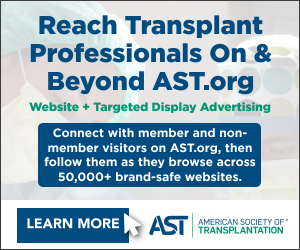 |
|||||||||||||||||||||||||||||||||||||||||||||||||||||||||||
| Past Issues | Subscribe | Advertise | myAST.org | |||||||||||||||||||||||||||||||||||||||||||||||||||||||||||
Important Dates
AST News
Medical Directors Forum
Join your colleagues in sharing innovative approaches to clinical practice, gaining insight into transplant finance, and expanding your leadership skills at the AST Medical Directors Forum.
Fellows Symposium: Registration Open
Registration for the Fellows Symposium on Transplantation is now open! This comprehensive program is designed for clinical fellows and residents, surgical fellows, research fellows, pharmacists, and other trainees planning a career in transplantation medicine, surgery, or research.
Fellows, residents, trainees, and pharmacists who meet the eligibility criteria can apply for a travel grant. Fellows who are ineligible for travel grants may still register as general attendees. Medical students are also welcome to attend.
Registration Open for International Transplantation Science 2025
On behalf of the AST, the European Society for Organ Transplantation (ESOT), and The Transplantation Society (TTS), we are excited to announce that registration is officially open for the International Transplantation Science Meeting 2025.
ITS 2025 marks the fourth tri-society event in this global collaboration, bringing together top experts, early-career researchers, and transplant professionals worldwide. This meeting offers an exciting forum to explore cutting-edge basic and translational science in and beyond the field of transplantation.
Sharing ABIM Governance Position Openings
The American Board of Internal Medicine (ABIM) has announced the following governance position openings for those interested in professional development and/or standard setting for internal medicine and its subspecialties.
Submissions are being accepted for the following positions: "ABIM Board of Directors - Public (Non-Internist) Member" (deadline July 16), "ABIM Council - Interprofessional with experience in Internal Medicine" (deadline July 20), and two positions on the "Nephrology Specialty Board" ("Early Career Nephrologist" and "Nephrologist Practicing in a Non-University/Community Setting", deadline July 20).
Head to Partner Connect to Win a pair of Apple AirPods!
In celebration of the World Transplant Congress taking place August 2–6 in San Francisco, we are launching a members only interactive website scavenger hunt on Partner Connect!
Here’s how it works:
The scavenger hunt begins July 9!
Search across Partner Connect and our sponsor’s e-sites for 10 hidden globe icons! Find them all and you will be entered to win brand new Apple Air Pods Pro 2! Good luck in the scavenger hunt and we can’t wait to see you in San Francisco as we come together to advance the field of transplant medicine!
Contact Congress About the Living Donor Protection Act
The Living Donor Protection Act (LDPA) has been reintroduced in Congress, and we need your support. This bipartisan legislation would prohibit insurance discrimination against living organ donors, ensure they can use FMLA leave during recovery, and require updated educational resources to promote donation.
Take action now — urge your lawmakers to support the LDPA.
Make Your Voice Heard: Protect Transplant Research Funding
Funding cuts to the National Institutes of Health (NIH) put critical transplant research at risk. NIH-funded studies have driven advancements in transplantation, improving patient outcomes and paving the way for innovations like new immunosuppressants, immune tolerance strategies, and even organ regeneration. Without this support, progress in the field could slow, affecting countless patients and families.
We need your help to ensure that transplant research remains a priority. Use our advocacy page to contact your members of Congress and urge them to protect NIH funding. Together, we can make a difference. Take action today!
AST Public Policy Form
The AST developed a survey aimed at soliciting your perspectives on legislative and regulatory issues that significantly influence both patient care and professional practice. Our goal is to establish a platform for our membership to share their invaluable ideas and perspectives and actively engage with the Public Policy Committee and AST leadership. We look forward to your input as we navigate the dynamics of our ever-evolving landscape of transplant care and practice.
Upcoming Education
Key Articles in Transplantation
Impact of the lung allocation system score modification by blood type on US lung transplant candidates
Source: American Journal of Transplantation
The lung continuous distribution system was modified on September 27, 2023, with the goal of increasing transplant access for blood type O candidates after an error was discovered in the simulation used to support the development of the initial allocation policy. This retrospective observational study compares national waitlist outcomes (transplant rate, waitlist mortality) under continuous distribution before (March 10, 2023, through September 26, 2023; premodification) and after (September 27, 2023, through April 14, 2024; postmodification) the blood type score modification. Which Donor and Recipient Risk Factors Matter in Heart Transplantation? Results From a Survey of 53 Centers Across Five Countries
Source: Clinical Transplantation
Consensus regarding what defines acceptable heart transplant (HT) donors or recipients is lacking. This survey analyzed how risk factors guide donor and recipient selection, and how practices vary across systems.
CTLA4 Single-Nucleotide Polymorphisms Influence the Risk of HSV and VZV Infection in Kidney Transplant Recipients: A Prospective Cohort Study
Source: frontiers Publishing Partnerships
Herpesviruses are able to modulate adaptive T-cell-mediated responses to establish latency within the host. Reactivation of herpes simplex virus (HSV)-1/2 and varicella zoster virus (VZV) is a frequent and potentially serious complication among kidney transplant recipients (KTRs). The ability of clinical criteria to identify KTRs at increased risk of α-herpesvirus (HSV/VZV) infection is limited. We investigated the effect of two single nucleotide polymorphisms (SNPs) in the cytotoxic T-lymphocyte antigen 4 (CTLA4) gene in a single-center cohort of 204 KTRs. After a median follow-up of 3.1 years, 34 of them (16.7%) experienced 22 episodes of zoster and 15 episodes of HSV-1/2 infection.
|
|||||||||||||||||||||||||||||||||||||||||||||||||||||||||||

